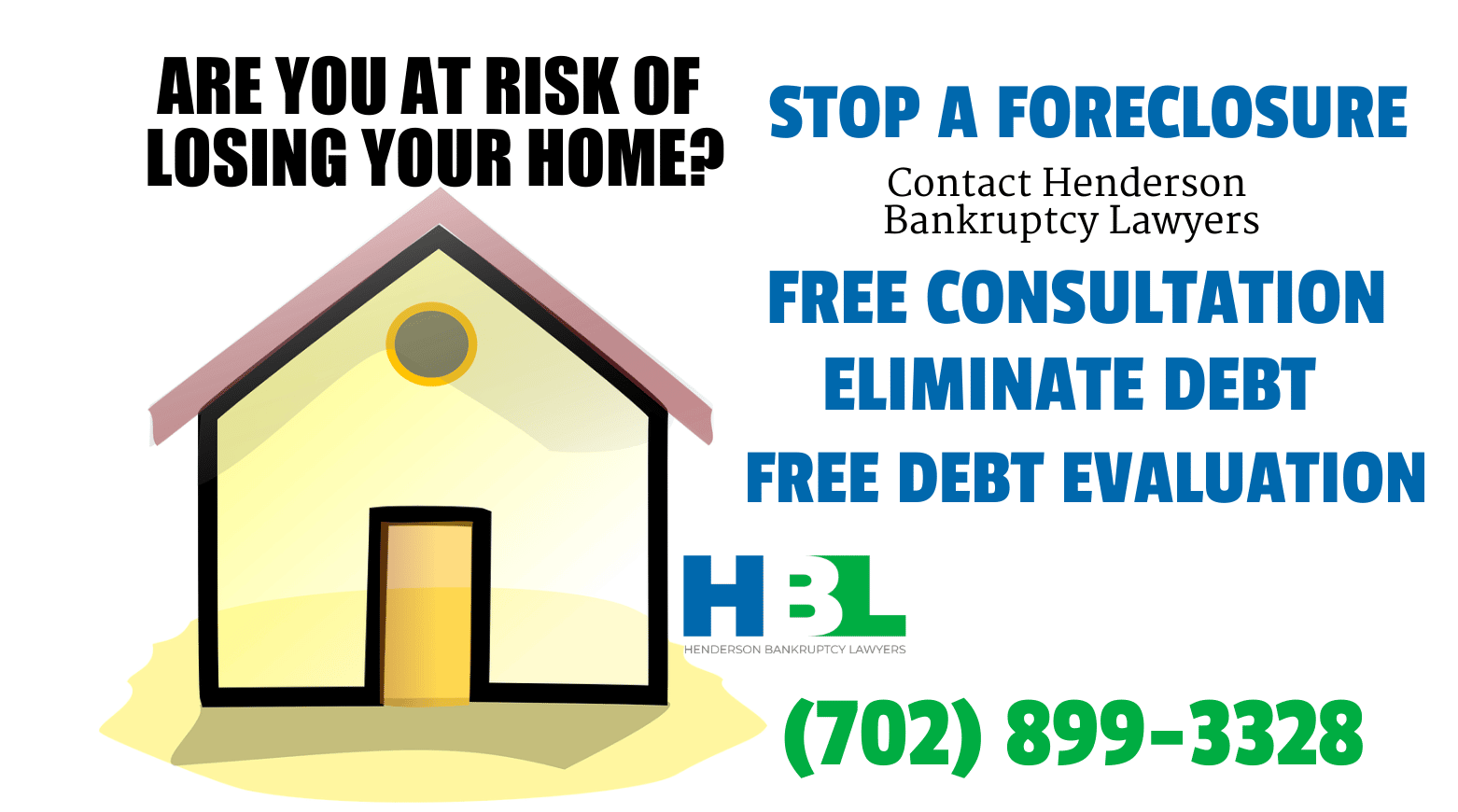Henderson Foreclosure Lawyer
Bankruptcy Can Stop a Foreclosure Sale in Nevada
In Nevada’s economy today, homes are being foreclosed at a higher rate. The increased frequency of foreclosures in the Las Vegas Metro area has led to many looking for debt relief assistance. Therefore, people unable to maintain the payments on their mortgages, go into default. Sans an agreement reached regarding payment arrangements with the bank they will probably lose their home.
Filing bankruptcy stops the foreclosure process. It allows you time to catch up on the past due amounts and to deal with your other debts. Whereas, once the bankruptcy is filed, an automatic stay stops a pending foreclosure sale on your house. Plus, it also stops any collection action on any additional debt. Also, the automatic stay remains in effect until your Nevada bankruptcy case is completed or dismissed.

Henderson Bankruptcy Attorney
Let our Nevada foreclosure attorney help you get a fresh new start.
BANKRUPTCY and FORECLOSURE FAQs
How Chapter 13 Bankruptcy Can Help with Foreclosure
Chapter 13 will also include unsecured debts like medical bills and credit cards. These types may not have to be paid in full in your plan before discharge, depending on your income and other debts. Your payment plan will be calculated using the full balance on arrearages, a financed vehicle, your mortgage payment in some jurisdictions, fees to the trustee, your attorney’s fees if your attorney agrees to work them into the plan instead of taking them up front, and a portion of your unsecured debts.
What Happens to Renters in a Foreclosure
If you are renting and your landlord loses the property in a foreclosure sale, in most circumstances you will still be protected by your lease. As long as you are still paying rent, the new owner is more likely to continue accepting checks rather than evict you. They may also offer you a financial incentive to move after the foreclosure sale has been completed.
Rules on how renters are treated after a foreclosure sale vary by state. Additionally, there may be a clause in your lease stating you must move if the property is sold through foreclosure. You should review your lease and consult an attorney if your landlord is facing foreclosure.
Don’t Wait Too Long to Get Foreclosure Advice
If cost is an issue, know that you can consult with an attorney free of charge. Our firm offers free consultations over the phone so you don’t even have to leave the house. Call to get started today!
